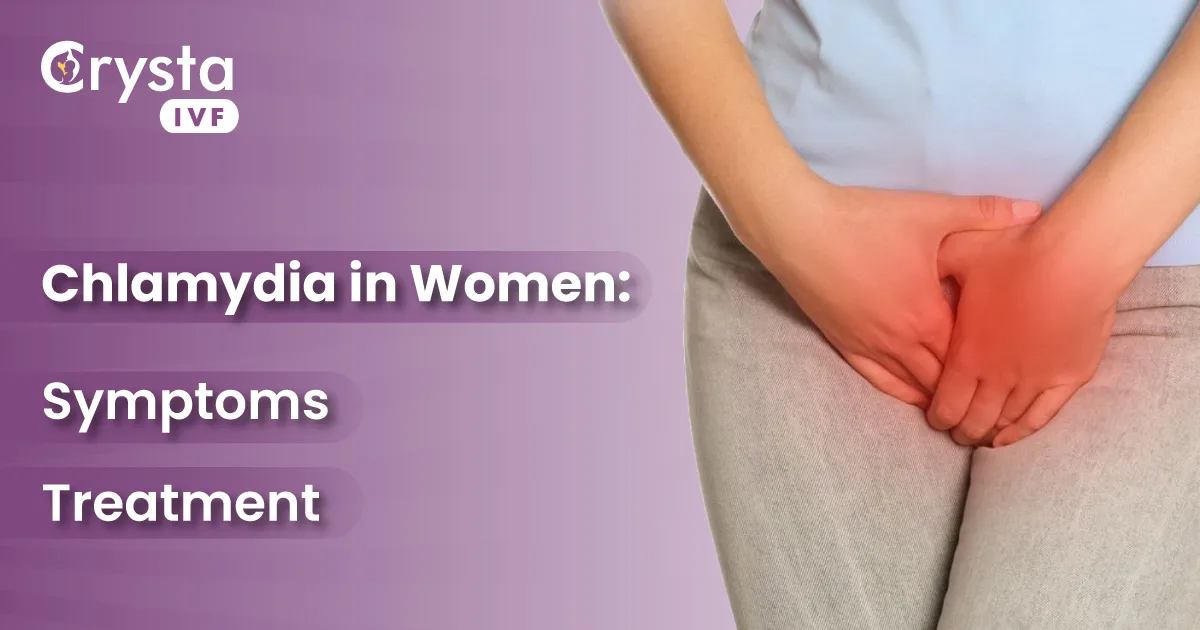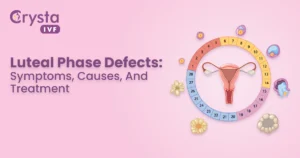Chlamydia is one of the most common Sexually Transmitted Infections (STIs). It can affect anyone, but its impact on women can be particularly concerning. Often, Chlamydia can be hidden, silently affecting you, with asymptomatic patterns. But its impact can wreak havoc on a woman’s reproductive health if left untreated. Understanding its symptoms is crucial for early detection and prompt treatment. This guide aims to shed light on the signs and risks associated with chlamydia in women, while also delving into prevention methods.
When it comes to symptoms of chlamydia in women, awareness is key. Unlike some infections, chlamydia often hides in the shadows. However, when symptoms do appear, they can vary and might be mistaken for other issues, leading to delayed diagnosis and potential complications.
Symtpoms of Chlamydia in Women
Chlamydia in women can manifest in various ways. Some of the most common symptoms can be:
- Abnormal Vaginal Discharge: An unusual discharge from the vagina that may have a different consistency, such as being thicker or having a strong odour. The colour can range from clear to cloudy or yellowish.
- Pain or Discomfort: Women who are infected with chlamydia can experience pain or a burning sensation during urination. They might also feel discomfort in the lower abdomen or during sexual intercourse.
- Irregular Bleeding: Bleeding as per your menstrual cycle is normal. But when women start bleeding at times other than their menstrual period cycle or after intercourse could indicate an infection. If this happens, then it is strongly advised to get checked by a doctor.
- Inflammation: In some cases, chlamydia can lead to inflammation in the pelvic area, causing pain in the lower abdomen.
- Asymptomatic Cases: Many times, chlamydia can also be asymptomatic. It means that women might not show any signs of infection but it persists within and can cause long-term complications if left untreated.
Symptoms of untreated chlamydia in females
Chlamydia, if left untreated, can lead to severe complications in women. It can spread to the uterus and fallopian tubes, causing Pelvic Inflammatory Disease (PID). PID can cause chronic pelvic pain, ectopic pregnancy (a pregnancy outside the uterus), and infertility due to damage to the reproductive organs.
Chlamydia Discharge
The discharge associated with chlamydia in women varies in colour and consistency. It can be cloudy, yellowish, or have a strong odour, indicating an infection. However, it’s crucial to consult a doctor for proper diagnosis and treatment rather than relying solely on visual cues.
Signs of Chlamydia in women
If there is even a slight chance of chlamydia, testing it out will be the most suitable action. Testing for chlamydia is very simple. A doctor can perform a urine test or swab the cervix for a sample to be tested in the laboratory. It’s essential to get tested regularly if you’re sexually active, or have multiple partners. One key point to remember is that even if there are no symptoms in you or your partner, regular test is the only way to detect any onset of infection early.
Treatment for Chlamydia in Women
Fortunately, chlamydia can be treated effectively with antibiotics prescribed by the doctor. What’s important is that the full course of medication should be completed to properly treat the infection. Another advice is to contact and inform your recent sexual partner(s) to seek immediate medical help to prevent the infection from spreading.
How to prevent Chlamydia?
Prevention plays a pivotal role in reducing the risk of chlamydia. Safe sexual practices, such as constant use of condoms during intercourse, can significantly reduce the possibility of contracting and spreading the infection. Regular testing, especially for individuals with multiple sexual partners, helps in early detection and prevention.
FAQs that might come in handy:
Q. How long can a female live with Chlamydia?
A. The whole point of spreading awareness against chlamydia is to stop it from happening and spreading. However, if a woman has contracted the infection and has left it untreated, the infection can linger for years. The longer it stays, the more damage it can cause such as infertility and pelvic pain.
Q. Can women get chlamydia without knowing?
A. Yes, Chlamydia can be asymptomatic and can live within you for years to come, causing the infection to spread and cause some permanent damage to your reproductive system. Thus, if you’re someone with an active sexual life, or with multiple partners, regular testing is advised.
Q. Is Chlamydia painful in females?
A. It can cause pain and discomfort during intercourse and can also spread the infection to the partner as well. It can also cause a burning sensation during urination, and pain in the lower abdominal region.
Q. What colour is chlamydia discharge?
A. Chlamydia discharge can vary in colour. It can be clear, cloudy, or yellowish. However, the diagnosis can only be clear after testing.
Q. Is Chlamydia a lifetime infection?
A. With proper treatment using antibiotics, chlamydia can be cured. However, just because it can be cured doesn’t mean it has no implications. There is still a high chance of reinfection with new exposures.
Q. Why is chlamydia higher in females?
A. Factors like anatomy (shorter urethra) and higher risk of asymptomatic infection contribute to higher rates of chlamydia in females.
Q. Can chlamydia stop your period?
A. Chlamydia can affect periods. Women who have this infection might suffer from irregular periods or spottings between periods.
Q. Can chlamydia affect pregnancy?
A. Yes, untreated chlamydia can damage reproductive organs in women leading to complications during pregnancy such as premature birth or transmission to the newborn. It can also cause infertility which can render the possibility of natural conception, impossible.
Q. How is chlamydia tested?
A. Doctors take your urine samples or swabs from the cervix to test if you have chlamydia or not.
Understanding the symptoms of chlamydia in women is crucial for early detection and prompt treatment to prevent long-term complications. If you suspect an infection or engage in high-risk sexual behaviour, consulting a doctor for testing and guidance is highly recommended.
It’s not a pleasant thing to be suffering from Chlamydia. On top of that, if you’re someone who is planning on becoming a mother, then you need to consult a specialist. Crysta IVF, a leading fertility centre in India, has a team of top doctors in the industry who can help you with the right set of guidance to counter the problem. Log on to https://crystaivf.com/ or contact us at 8938935353 and book an appointment with us. Crysta IVF is ready to help you all the way.




